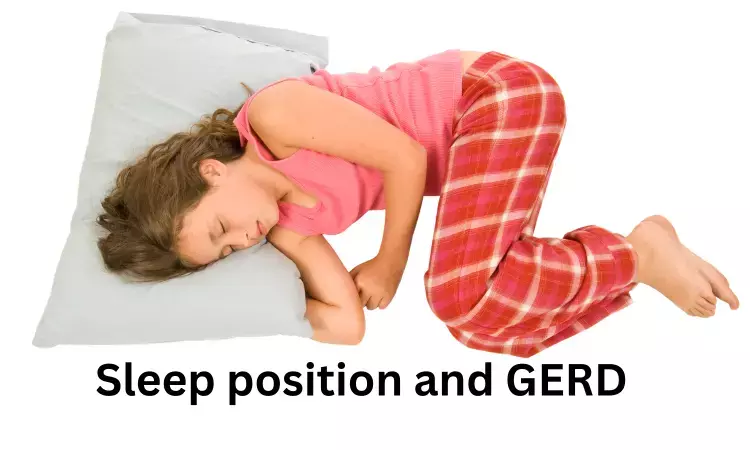- Home
- Medical news & Guidelines
- Anesthesiology
- Cardiology and CTVS
- Critical Care
- Dentistry
- Dermatology
- Diabetes and Endocrinology
- ENT
- Gastroenterology
- Medicine
- Nephrology
- Neurology
- Obstretics-Gynaecology
- Oncology
- Ophthalmology
- Orthopaedics
- Pediatrics-Neonatology
- Psychiatry
- Pulmonology
- Radiology
- Surgery
- Urology
- Laboratory Medicine
- Diet
- Nursing
- Paramedical
- Physiotherapy
- Health news
- Fact Check
- Bone Health Fact Check
- Brain Health Fact Check
- Cancer Related Fact Check
- Child Care Fact Check
- Dental and oral health fact check
- Diabetes and metabolic health fact check
- Diet and Nutrition Fact Check
- Eye and ENT Care Fact Check
- Fitness fact check
- Gut health fact check
- Heart health fact check
- Kidney health fact check
- Medical education fact check
- Men's health fact check
- Respiratory fact check
- Skin and hair care fact check
- Vaccine and Immunization fact check
- Women's health fact check
- AYUSH
- State News
- Andaman and Nicobar Islands
- Andhra Pradesh
- Arunachal Pradesh
- Assam
- Bihar
- Chandigarh
- Chattisgarh
- Dadra and Nagar Haveli
- Daman and Diu
- Delhi
- Goa
- Gujarat
- Haryana
- Himachal Pradesh
- Jammu & Kashmir
- Jharkhand
- Karnataka
- Kerala
- Ladakh
- Lakshadweep
- Madhya Pradesh
- Maharashtra
- Manipur
- Meghalaya
- Mizoram
- Nagaland
- Odisha
- Puducherry
- Punjab
- Rajasthan
- Sikkim
- Tamil Nadu
- Telangana
- Tripura
- Uttar Pradesh
- Uttrakhand
- West Bengal
- Medical Education
- Industry
Sleep positional therapy using an electronic wearable device improves sleep in GERD patients

Gastroesophageal reflux disease (GERD) is often treated with lifestyle modifications, acid-suppressive medication, and sometimes surgery, depending on the nature and severity of the disease. Nocturnal reflux symptoms, is seen in 80% of the GERD patients, can severely hamper sleep quality and are often difficult to treat with current treatments, including acid-suppressive medications.
A recent study was conducted by Jeroen M. Schuitenmaker and team, to evaluate the effect of an electronic positional therapy wearable device on nocturnal gastroesophageal reflux measured by pH-impedance reflux monitoring.
The prospective study published in Neurogastroenterology and Motility reveals that sleep positional therapy using an electronic wearable device was effective in promoting sleep. The wearable device alerted participants when in the right lateral decubitus position and the number of nocturnal reflux episodes and median acid exposure time decreased. The device significantly increased the time spent in the left lateral decubitus position. The symptoms improved in 70% of the participants.
The study was a single-center, prospective, interventional study in 30 patients with nocturnal reflux symptoms and a nocturnal esophageal acid exposure time (AET) ≥1.5% measured off acid-suppressive medication by ambulatory pH-impedance reflux monitoring. Patients were treated with an electronic positional therapy wearable device for 2 weeks. The device vibrated in the right lateral decubitus position so it conditions patients to avoid that sleep position. After 2 weeks treatment, the pH-impedance study was repeated. Primary outcome was the change in nocturnal AET. Secondary outcomes include change in number of reflux episodes and reflux symptoms.
The key findings of the study are
• Researchers could get complete data were available for 27 patients (13 females, mean age 49.8 years).
• The median nocturnal AET decreased from 6.0% (IQR, 2.3–15.3) to 3.1% (0.1–10.8) after 2 weeks of treatment (p = 0.079).
• The number of reflux episodes was significantly reduced after 2 weeks of treatment (baseline: 8.0 (3.0–12.3) vs. end: 3.0 (1.0–8.0); p = 0.041).
• Treatment led to a statistically significant decrease in time spent in right lateral decubitus position (baseline: mean 36.9% ± 15.2% vs. end: 2.7% ± 8.2%; p = <0.001) and an increase in the left lateral decubitus position (baseline 29.2% ± 14.8% vs. end: 63.3% ± 21.9%; p = <0.001.
• Symptom improvement was reported by 70.4% of the patients.
Researchers concluded that “Sleep positional therapy using an electronic wearable device promotes sleeping in the left lateral decubitus position and improves reflux parameters measured by pH-impedance reflux monitoring.”
Reference: Jeroen M. Schuitenmaker, Thijs Kuipers, Marlies P. Schijven, André J. P. M. Smout, Paul Fockens, Albert J. Bredenoord; The effect of sleep positional therapy on nocturnal gastroesophageal reflux measured by esophageal pH-impedance monitoring, Neurogastroenterolog & Motility; DOI: https://doi.org/10.1111/nmo.14614.
MSc. Neuroscience
Niveditha Subramani a MSc. Neuroscience (Faculty of Medicine) graduate from University of Madras, Chennai. Ambitious in Neuro research having worked in motor diseases and neuron apoptosis is interested in more of new upcoming research and their advancement in field of medicine. She has an engrossed skill towards writing and her roles at Medical dialogue include Sr. Content writer. Her news covers new discoveries and updates in field of medicine. She can be reached at editorial@medicaldialogues.in
Dr Kamal Kant Kohli-MBBS, DTCD- a chest specialist with more than 30 years of practice and a flair for writing clinical articles, Dr Kamal Kant Kohli joined Medical Dialogues as a Chief Editor of Medical News. Besides writing articles, as an editor, he proofreads and verifies all the medical content published on Medical Dialogues including those coming from journals, studies,medical conferences,guidelines etc. Email: drkohli@medicaldialogues.in. Contact no. 011-43720751


